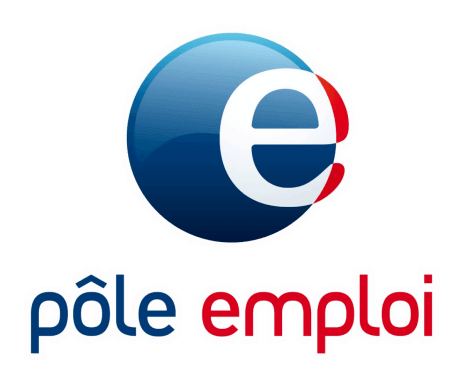I am looking for funding
Do not delay your search for funding. Some procedures can take time. You can get help with your search by contacting our services.
Please note: registration fees may be payable by you even if you are receiving funding for your course’s tuition fees. If you fail to secure funding for your tuition fees you must settle them yourself. There are many sources of funding for continuing education depending on your situation. Selection your situation below to learn more.
Your training course or the certification of your work experience can be funded by your employer, the OPCA (an accredited fund-collection agency) or the OPACIF (an accredited fund-collection agency for the Individual Training Leave scheme) to which your company pays contributions or another funding source (Regional Committee, the state, etc.). There are various training programs available to you regardless of whether you are on a permanent or fixed-term contract. They can be initiated at your own initiative or your employer’s. At the initiative of your employer. Training courses that are organized by companies under their full and complete responsibility are grouped under an annual training plan. When you do a training course that has been registered in the plan, your remuneration and tuition fees will be paid by your employer. At your own initiative or your employer’s. Its purpose is, through training, to help employees on CUI (special employment contracts for the disadvantaged) or fixed-term contracts to remain in employment in SIAEs (companies that participate in a national scheme that promotes the integration of all into employment). Tuition fees are covered by the OPCA (an accredited fund-collection agency), to which the company pays contributions. • All or part of the costs connected with training (tuition fees, transportation, accommodation, etc.). Individual Training Leave is also available to those with fixed-term contracts that have recently ended. Applications for funding (training costs and remuneration) should be addressed to the FONGECIF www.fongecif-idf.fr or the OPACIF of the company where the applicant held his or her most recent fixed-term contract. At your own initiative or your employer’s. For young people between the ages of 16 and 25 and job seekers aged 26 and over. It enables the student to acquire a professional qualification and facilitates his or her entry or re-entry into employment. Those with on a company training scheme have the status of an employee and will have a permanent or fixed-term employment contract. Remuneration is calculated on the basis of the minimum wage or the standard industry wage and according to age and level of qualification. Tuition fees are covered by the OPCA (an accredited fund-collection agency), to which the company pays contributions. You can obtain indirect financial aid (paid to the university, thereby reducing the fees that remain payable by you) in order to pursue a course at university outside of working hours. You can fund the certification of your work experience under a training plan with your company or the OPCA (an accredited fund-collection agency) to which your company pays contributions. Expenses that are payable by your employer: • Fees pertaining to certification You can also certify your work experience and finance it through other schemes such as the congé individuel de formation (individual training leave), the droit individuel à la formation (individual right to training), the congé VAE (leave for the purpose of obtaining certification of your work experience) and the période de professionnalisation (leave to pursue combined study/on-the-job training) as well as various other schemes through which you can pursue different forms of continuing professional development. • Information on the website of the Ministry of Labor, Employment, Professional Development and Social Dialog: www.travai-emploi.gouv.fr There are various training programs available to you. They can be initiated at your own initiative or your employer’s. At the initiative of your employer. Training courses organized by institutions or companies are grouped under an annual training plan. When you do a training course that has been registered in the plan, your remuneration and tuition fees will be paid by your employer. Can be initiated by you with the agreement of your employer. Each year, you will be credited 20 training hours. They can be accumulated over six years. If they are not used, a cap 120 hours is applied and retained until hours are used. You can only use your DIF for certain activities approved by your organization it its Training Plan. Training can take place during or outside of working hours. Your employer will cover the cost of the training. You will receive a training benefit if the latter is conducted outside of working hours. At your own initiative or your employer’s. Its purpose is to support the maintenance of skills in response to changing needs or to prepare for a change in profession through training of a maximum of six months. The cost of the training is covered by your employer. You will continue to receive your remuneration. Registration fees and the costs related to the issuance of the degree may be payable by the student. At your own initiative. This scheme enables public servants to do training courses for professional or personal purposes that are not offered by the state or to register to do preparatory courses for administrative competitions. In most cases, public servants must pay their own tuition costs, which does not exclude some financial aid from their department. You can finance the certification of your work experience through your company’s internal training plan. Expenses that are payable by your employer: • Fees pertaining to certification You can also certify your work experience and finance it through other schemes such as the droit individuel à la formation (individual right to training), the congé VAE (leave for the purpose of obtaining certification of your work experience). • Information on the public services website: vosdroits.service-public.fr The cost of your training or the certification of your work experience can be covered by different types of funding. Combined study/on-the-job training is accessible to job seekers (apprenticeship agreement or company training scheme). It offers you new employment prospects and provides for a period of training that is fully funded. Each Regional Committee defines its policy regarding funding for training for job seekers. The Regional Committee for Île-de-France particularly provides the following types of aid: • Funding for training under the regional PRQ scheme (Programme Régional Qualifiant) For young people between the ages of 16 and 25 and job seekers aged 26 and over. It enables the student to acquire a professional qualification and facilitates his or her entry or re-entry into employment. Those with on a company training scheme have the status of an employee and will have a permanent or fixed-term employment contract. Remuneration is calculated on the basis of the minimum wage and according to age and level of qualification. Tuition fees are covered by the OPCA (an accredited fund-collection agency), to which the company pays contributions. For young people between the ages of 16 and 26. It enables the student to acquire a professional qualification and facilitates his or her entry or re-entry into employment. Those with an apprenticeship agreement have the status of an employee and will have a permanent or fixed-term employment contract. Remuneration is calculated on the basis of the minimum wage and according to age and level of qualification. Tuition fees are covered. If you are a former employee on a fixed-term contract that ended less than one year ago and you fulfill the required conditions, you have the right to Individual Training Leave for one year (CIF-CDD). Applications for funding (training costs and remuneration) should be sent to the FONGECIF or OPACIF (both are organizations that fund continuing professional development) of the company where the applicant held his or her most recent fixed-term contract. Job seekers in the Île-de-France region can receive a chéquier VAE (funding from the Regional Committee of Île-de-France), which provides for partial coverage of the cost of certifying work experience. The responsibility for granting this funding lies with the Pôle Emploi. Job seekers receiving the ARE (Aid for Return to Employment) can receive financial aid from the Pôle Emploi to completely or partially cover the costs associated with obtaining certification (registration fees, supporting services, etc.). • Information on the website of the Ministry of Labor, Employment, Professional Development and Social Dialog: www.travail-emploi.gouv.fr (The “liberal professions”, farmers, artisans, traders, independent workers, etc.) You can, in accordance with the conditions established by your Training Insurance Fund (Fonds d’Assurance Formation), receive funding for your training. Your chamber of commerce can also assist you with the procedures involved. You can, subject to certain conditions, benefit from training that may be funded by the Temporary Employment Insurance Fund (FAFTT). You can access the congé individuel de formation (individual training leave) and droit individuel à la formation (individual right to training) for temporary workers. You can contact the AGEFIPH (a fund for the integration of persons with disability into employment), which can provide assistance, subject to certain conditions, to facilitate access to or the continuance of employment. The AGEFIPH can provide the following assistance: • A contribution for the employer toward tuition costs in addition to the funding provided by the company itself or the OPCA (an agency that collects funds for continuing professional development). Certain pension funds cover a part of the cost of training depending on their own criteria. You can become an apprentice and enter a combined study/on-the-job training scheme. • Information on the website of the Ministry for Labor, Industrial Relations, Family, Solidarity and Cities: travail-emploi.gouv.frTraining plans
The Personal Training Account (Compte Personnel de Formation)

Training leave
You will continue to receive your remuneration. Registration fees and the costs related to the issuance of the degree may be payable by the student.Individual Training Leave (congé individuel de formation)

The OPACIF can cover the costs of the following:
• Your remuneration, depending on the amount of time you work and specific conditions.Company training schemes
Funding from a Regional Committee
For example, you can do the DAEU (a general pre-degree) or a distance course.Funding the certification of your work experience
• Fees pertaining to assistance with the preparation for certification
• Remuneration of beneficiaries within 24 hoursTo go further
• Information about continuing education throughout life: www.centre-inffo.fr
• Information about CARIF: www.carif-idf.org
• Information about your training rights: http://www.droit-de-la-formation.fr
• Information to help you choose a course: www.orientation-formation.fr
• Information about the Île-de-France region: www.iledefrance.fr
Droit individuel à la formation (individual right to training)
Training leave
Congé de formation professionnelle (leave for continuing professional development)
Funding the certification of your work experience
• Fees pertaining to assistance with the preparation for certification
• Remuneration of beneficiaries within 24 hoursTo go further
• Information about continuing education throughout life: www.centre-inffo.fr
• Information about the Fonction publique: www.fonction-publique.gouv.frFunding from the Pôle Emploi

The training plan must be approved by the Pôle Emploi. Your remuneration will depend on your status and whether you are a job seeker who is indemnified or not.
Direct financial aid can be given to cover the costs associated with training.Funding from a Regional Committee
• Special funding for training not provided for under the PRQ scheme
• Funding for the Diplôme d’Accès aux Etudes Universitaires (a general pre-degree)
• The chéquier VAE, which funds the certification of work experience.Company training schemes
Apprenticeship agreement
Individual Training Leave (CIF) for former employees on fixed-term contracts
Funding the certification of your work experience
To go further
• Information about continuing education throughout life: www.centre-inffo.fr
• Information about CARIF: www.carif-idf.org
• Information about your training rights: www.droit-de-la-formation.fr
• Information to help you choose a course: www.orientation-formation.frNon-employees
Temporary workers
Persons with disability
• A contribution for the beneficiary in addition to funding from: the FONGECIF and OPACIF (both are organizations that fund continuing professional development), Pôle Emploi, the state, a region, etc.
• A subsidy for the training organization for the adaptation of training content.Funding from pension funds
For young people between the ages of 16 and 25
Tuition fees are covered by public funding.To go further
• Information about continuing education throughout life: www.centre-inffo.fr
• Information about CARIF: www.carif-idf.org
• Information about your training rights: www.droit-de-la-formation.fr
• Information to help you choose a course: www.orientation-formation.fr
































